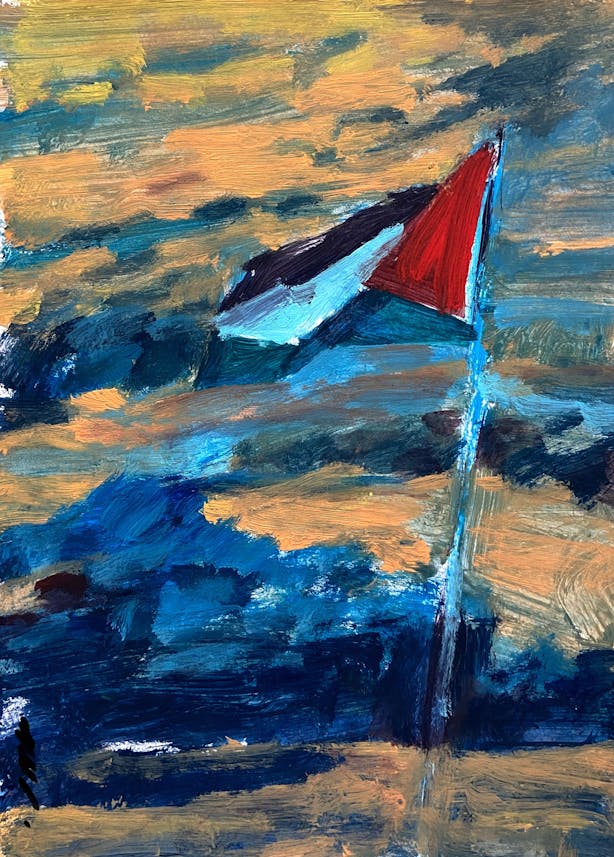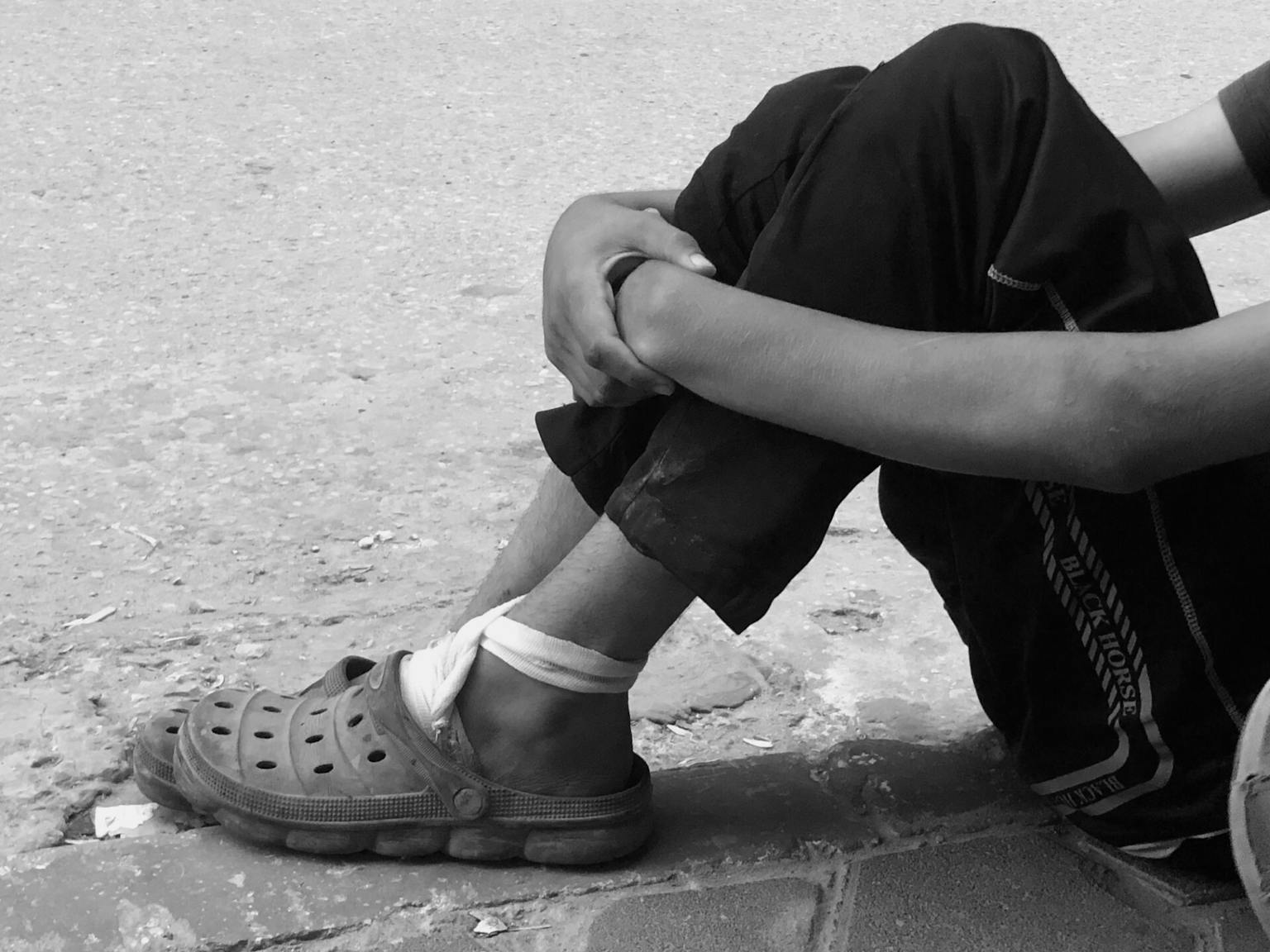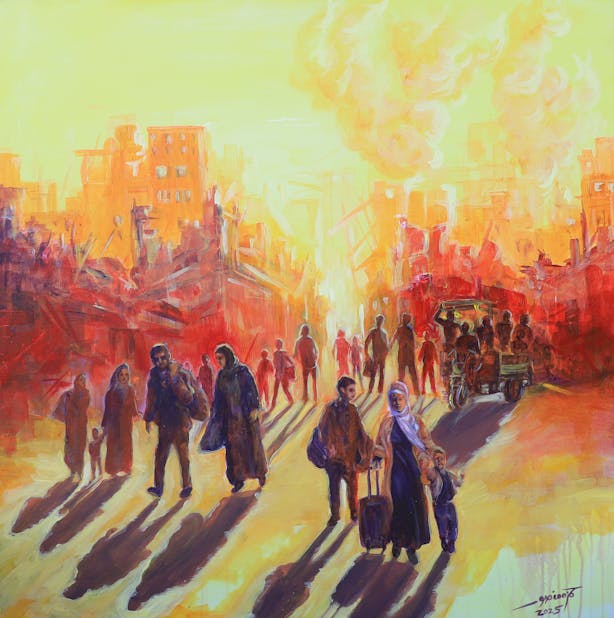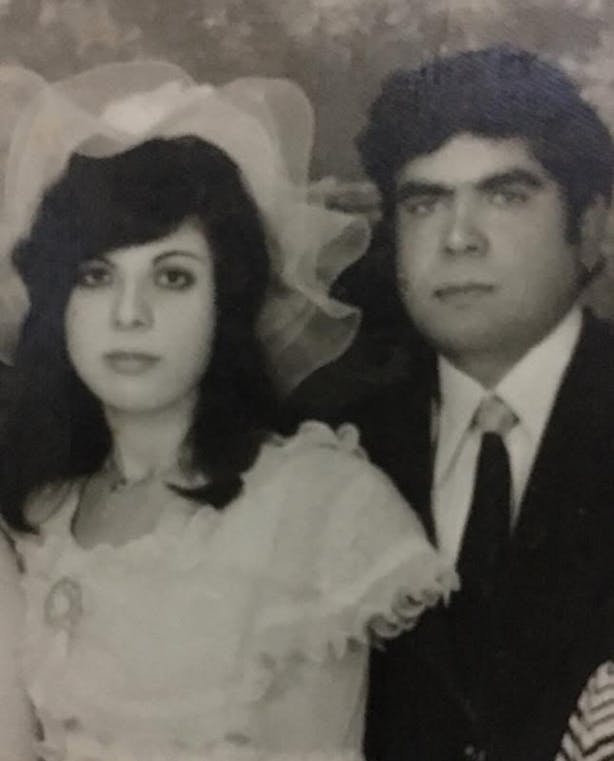
- Writing Gaza
Writing Gaza
Omar Berrada & Shivangi Mariam Raj
Translated from Arabic by Omar Berrada
Writing is not born a necessity but becomes one when it proves urgent like instinct, unrelenting like thirst or drowsiness. To pursue it is to become ensnared until you escape from it, towards it. You inevitably move from the idea of ‘I write, therefore I confront sadness’ to ‘I write, therefore I practise sadness’. Instinctive human experience sharpens one’s soul and sensations. To live it fully is to achieve joy.
In my own personal context, that is how I confront genocide as a poet.
It is an intimate necessity that naturally converges with human and national duty. It does not reduce the pain of a people to the scale of a single body. Rather, by producing a complete spiritual and psychological archive, which only writing can produce, it presents one case out of a whole.
It is therefore not a luxury, but an existential battle for securing a path to the future. Which means that, in the Palestinian context, we lose ownership of every wound/pain/event/scene we experience, simply by living it: it becomes public property that must be recorded and narrated so that future generations can understand the context of their political struggle from their past/our present.
In so doing, it erects a barricade – also known as truth – on the path of falsehood’s deceitful narratives.
My texts have been translated into more than eight languages and have found a place in international and Arab newspapers, which makes me wonder about the secret that opened the doors of translation to my writing. I always engage in this process of assessing my experience in order to enrich it.
I don’t write for posterity, but I am a victim with a loud voice and a clear, shattered heart, stripped of any bias that might taint my account. I write with my blood and in my blood, letting the text rise up to my eyes, so that it might actually see, rather than simply look. Throughout the genocide, my main literary worry has been to fail to write a shared human text whose scream reveals the scream in other people’s throats, and whose grief reveals the grief in their hearts. I stripped humanity under genocide of the myth that weighs it down and exposed the weakness of projecting criminal traits exclusively on the killer. With my poems, I call on the reader to follow their instinct and defend the victims, whatever their ethnic roots or beliefs. And I call on them to confront the murderers, whatever their ethnic roots or beliefs.

Al-Da’alsa, Untitled (2024)

Omar Berrada & Shivangi Mariam Raj

Hamed Ashour

Hanan Habashi